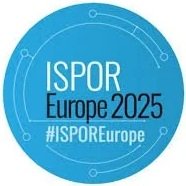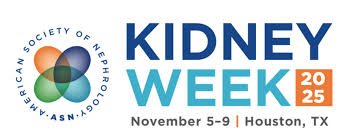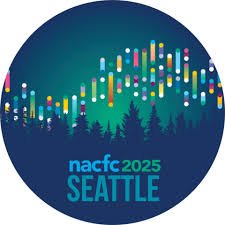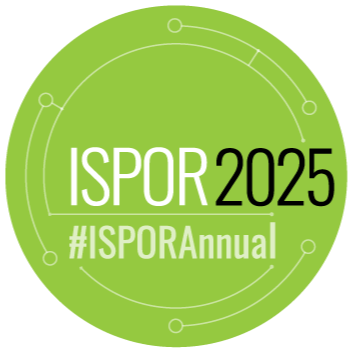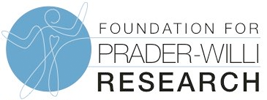Research & Publications
Our latest scientific publications
Using Home-Reported Outcomes to uncover the full burden of disease and impact of therapy
Recent Publications
Patient Perspectives on Disease Experiences and Value of Real-Time Self-Reported Symptom and Treatment Monitoring in Locally Advanced and Metastatic Breast Cancer
November 2025 at ISPOR EU
Authors/Institutions: Jillian Lusk (Pfizer), Connie Zhang (Folia Health) , Amanda Healey (Folia Health), Ainsley Belisle (Folia Health), Jordan Owashi (Folia Health), Samantha McStocker (Folia Health), Maria Jakobsson (Pfizer)
Baseline Characteristics and Treatment Satisfaction of Patients (Pts) Enrolled in Immunoglobulin A Nephropathy (IgAN) Bridge: Interim Results From a Home-Reported Outcomes (HROs) Study
November 2025 at ASN Kidney Week
Authors/Institutions: Briana Ndife (Novartis Pharmaceuticals), Pietro Canetta (Columbia University), Sayna Norouzi (Loma Linda University Medical Center), Hiba Anwar (Folia Health), Luke Stephens (Folia Health), Rahul Khairnar (Novartis Pharmaceuticals), Connie Zhang (Folia Health), Samantha McStocker (Folia Health), Amanda Healey (Folia Health), Jordan Owashi (Folia Health), Sara Villard (Folia Health), Helen Trenz (Novartis Pharmaceuticals), Anne Alfano, Aran Rice, Mohanram Narayanan (Baylor Scott & White Medical Center),
Baseline Characteristics and Treatment Satisfaction of Patients (Pts) Enrolled in C3 Glomerulopathy (C3G) Connect: Interim Results From a Home-Reported Outcomes (HROs) Study
November 2025 at ASN Kidney Week
Authors/Institutions: Rahul Khairnar (Novartis Pharmaceuticals), Mohanram Narayanan (Baylor Scott & White Medical Center), Hiba Anwar (Folia Health), Luke Stephens (Folia Health), Connie Zhang (Folia Health), Samantha McStocker (Folia Health), Amanda Healey (Folia Health), Jordan Owashi (Folia Health), Sara Villard (Folia Health), Helen Trenz (Novartis Pharmaceuticals), Anne Alfano, Aran Rice, Briana Ndife (Novartis Pharmaceuticals), Sayna Norouzi (Loma Linda University Medical Center), Pietro Canetta (Columbia University)
Home-Reported Outcomes Study (HERO-2): Does Change in Reported Cough Predict Future Pulmonary Exacerbations?
October 2025 at NACFC
Authors/Institutions: Bradley H. Rosen (Indiana University) Kevin J. Psoter (Johns Hopkins University), Georgene E. Hergenroeder (Children’s Hospital of Philadelphia), Kathryn A. Sabadosa (Cystic Fibrosis Foundation), Lisa L. Bendy (Indiana University), Nell Meosky Luo (Folia Health), Connie Zhang (Folia Health), Cynthia D. Brown (Indiana University), Clement L. Ren (Children’s Hospital of Philadelphia)
Assessing Alignment Between Standardized Patient-Reported Outcomes and Home-Reported Outcomes in IgAN: Demonstrating the Value of HROs in Capturing the Full Patient Experience
October 2025 at NORD Breakthrough Summit
Authors/Institutions: Rahul Khairnar (Novartis Pharmaceuticals), Briana Ndife (Novartis Pharmaceuticals), Samantha McStocker (Folia Health), Connie Zhang (Folia Health), Amanda Healey (Folia Health), Hiba Anwar (Folia Health), Sara Villard (Folia Health)
Stratifying Home-Reported Outcomes by Time Since Diagnosis in IgAN: Methodology and Early Findings
October 2025 at NORD Breakthrough Summit
Authors/Institutions: Briana Ndife (Novartis Pharmaceuticals), Rahul Khairnar (Novartis Pharmaceuticals), Samantha McStocker (Folia Health), Connie Zhang (Folia Health), Amanda Healey (Folia Health), Hiba Anwar (Folia Health), Sara Villard (Folia Health)
Preliminary Symptom and Treatment Data From an App-Based Study on Paroxysmal Nocturnal Hemoglobinuria
October 2025 at NORD Breakthrough Summit
Authors/Institutions: David Dingli, MD, PhD (Mayo Clinic), Connie Zhang, MPH (Folia Health), Samantha McStocker, (Folia Health), Amanda Healey, MPH (Folia Health), Nicholas Kuypers, PhD (Novartis Pharmaceuticals), Hiba Anwar, MPH (Folia Health), Jincy Paulose, MD (Novartis Pharmaceuticals) Ver Bilano, PhD (Novartis Pharmaceuticals) Puja Seth, Soyon Lee, PharmD, MPH (Novartis Pharmaceuticals)
Study-start characteristics of individuals with severe hypertriglyceridemia (sHTG) in an app-based home-reported outcomes study evaluating disease burden and treatment patterns
July 2025 at PancreasFest
Authors/Institutions: Asia Sikora Kessler, PhD; Connie Zhang, MPH; Samantha McStocker, BS; Hiba Anwar, MPH; Ainsley Belisle, MS; Sarah Villard, PhD; Amanda Healey, MPH; Montserrat Vera Llonch, MD, MPH
Interim symptom and treatment data from an app-based study on paroxysmal nocturnal hemoglobinuria
June 2025 at ISTH
Authors/Institutions: Pietro Canetta (Columbia University), Hiba Anwar (Folia Health) , Luke Stephens (Folia Health) Rahul Khairnar (Novartis Pharmaceuticals), Connie Zhang (Folia Health), Samantha McStocker (Folia Health), Amanda Healey (Folia Health), Jordan Owashi (Folia Health),Helen Trenz (Novartis Pharmaceuticals),Anne Alfano (Bondville, VT), Aran Rice (Boulder, CO) Briana Ndife (Novartis Pharmaceuticals), Mohanram Narayanan (Baylor Scott & White Medical Center)
Patient-Defined Flare Measurement Development in Conditions with Known Flares
Panel: Why Patient Involvement is a Must Have to Ensure Accessibility to Digital Health Technologies and Development of Patient Relevant Clinical Endpoints
June 2025 at DIA Global Annual Meeting
Design of a Disease-Management App to Measure Home-Reported Outcomes (HROs) in Patients (Pts) With IgA Nephropathy (IgAN) and C3 Glomerulopathy (C3G)
April 2025 at NKF Spring Clinical Meetings
Authors/Institutions: Pietro Canetta (Columbia University), Hiba Anwar (Folia Health) , Luke Stephens (Folia Health) Rahul Khairnar (Novartis Pharmaceuticals), Connie Zhang (Folia Health), Samantha McStocker (Folia Health), Amanda Healey (Folia Health), Jordan Owashi (Folia Health),Helen Trenz (Novartis Pharmaceuticals),Anne Alfano (Bondville, VT), Aran Rice (Boulder, CO) Briana Ndife (Novartis Pharmaceuticals), Mohanram Narayanan (Baylor Scott & White Medical Center)
1- Exploring Patterns of App-Based Tracking of Real-World Symptom and Treatment Experiences in Patients with Sickle Cell Disease and Cystic Fibrosis
2- Tracking Patterns in Sleep Disturbances During Flare-Ups in Patients With Atopic Dermatitis: Insights From an App-Based Digital Health Tracking Study
3- Beyond clinical data: Assessing usage patterns of real-world home-reported outcomes to capture the full burden of atopic dermatitis symptoms and flares
May 2025 at ISPOR 2025
Baseline Characteristics of Individuals with Paroxysmal Nocturnal Hemoglobinuria in an App-Based Home-Reported Outcomes Study to Evaluate Disease Burden
December 2024 at ASH
Authors/Institutions: David Dingli, MD, PhD (Mayo Clinic), Connie Zhang, MPH (Folia Health), Samantha McStocker (Folia Health), Amanda Healey, MPH (Folia Health), Nicholas Kuypers, PhD (Novartis), Mohin Chanpura, MS (Novartis), Hiba Anwar, MPH (Folia Health), Jincy Paulose, MD (Novartis), Soyon Lee, MPH (Novartis), Puja Seth, Glorian Yen, PhD, MPH (Novartis)
Patient-driven study design and implementation in an app-based research program measuring home-reported outcomes (HROs) in paroxysmal nocturnal hemoglobinuria (PNH)
October 2024 at NORD Summit
Lung function and pulmonary exacerbations in individuals who discontinue chronic daily respiratory therapies: results of the Home Reported Outcomes Study-2 (HERO-2)
September 2024 at NACFC
Authors/Institutions: Cynthia Brown, MD (Indiana University), Kevin Psoter, PhD, MPA (Johns Hopkins University), Kathryn Sabadosa, MPH (CF Foundation), Lisa Bendy (Indiana University), Nell Meosky Luo, BS (Folia Health), Connie Zhang, MPH (Folia Health), Clement Ren, MD MBA (Children’s Hospital of Pennsylvania)
Are we measuring what matters to patients? A narrative and scoping review of flare-up symptoms tracked in an app-based platform compared to clinical endpoints in complex and rare conditions
September 2024 at Global Genes Week in RARE
Authors/Institutions: Connie Zhang, MPH (Folia Health), Hiba Anwar, MPH (Folia Health), Sarah Villard, PhD (Folia Health), Nell Meosky Luo (Folia Health)
Using Real-World Research to Study the Impact of Chronic Daily Therapy Discontinuation in Cystic Fibrosis The Home-Reported Outcomes in Cystic Fibrosis 2 Study Design
June 2024 in CHEST Pulmonary
Authors/Institutions: Bradley Rosen, MD (Indiana University), Kevin Psoter, PhD, MPA (Johns Hopkins University), Kathryn Sabadosa, MPH (CF Foundation), Georgene E. Hergenroeder (Children’s Hospital of Philadelphia), Lisa Bendy (Indiana University), Nell Meosky Luo, BS (Folia Health), Connie Zhang, MPH (Folia Health), Clement Ren, MD MBA (Children’s Hospital of Pennsylvania), Cynthia Brown, MD (Indiana University)
Patient-defined symptom burden and treatment utilization in a home-reported outcomes (HRO) study in sickle cell disease (SCD)
December 2023 at ASH
Authors/Institutions: Connie Zhang, MPH (Folia Health), Amanda Healey, MPH (Folia Health), Hiba Anwar, MPH (Folia Health), Nell Meosky Luo (Folia Health)
Exploring Factors Linked to Home-Reported Acute Pain Events and Pain Crises in Sickle Cell Disease (SCD) through Flare Tracking in the Ascend Study
December 2023 at ASH
Authors/Institutions: Connie Zhang, MPH (Folia Health), Amanda Healey, MPH (Folia Health), Hiba Anwar, MPH (Folia Health), Nell Meosky Luo (Folia Health)
Enhancing the Understanding of Phenotypic Outcomes in Sickle Cell Disease (SCD) Through a Comparison Between Data Collected Through App-Based Home-Reported Outcomes (HROs) Versus Qualitative Methodologies
November 2023 at ISPOR Europe
Authors/Institutions: Connie Zhang, MPH (Folia Health), Amanda Healey, MPH (Folia Health), Hiba Anwar, MPH (Folia Health)
Patient-driven study design and implementation in an app-based research program measuring home-reported outcomes in sickle cell disease (SCD)
October 2023 at SCDAA
Authors/Institutions: Connie Zhang, MPH (Folia Health), Amanda Healey, MPH (Folia Health), Hiba Anwar, MPH (Folia Health), Nell Meosky Luo, BS (Folia Health)
Leveraging patient-generated data beyond clinical trials: a meta-analysis review of the HRO framework in cystic fibrosis (1048)
October 2023 at ISOQOL
Authors/Institutions: Connie Zhang, MPH (Folia Health), Nell Meosky Luo, BS (Folia Health), Paula Mello Ferber, BA (Folia Health)
Identifying potential flare events in rare disease by applying a threshold-based analysis approach to home-reported outcomes
October 2023 at ISOQOL
Authors/Institutions: Hiba Anwar, MPH (Folia Health), Liz Rowe (Folia Health), Amanda Healey, MPH (Folia Health) Connie Zhang, MPH (Folia Health), Paula Mello Ferber, BA (Folia Health), Nell Meosky Luo, BS (Folia Health)
Canopy Series: Designing a Community-Driven Research Initiative with Accessible Data Insights
October 2023 at NORD Summit
Authors/Institutions: Connie Zhang, MPH (Folia Health), Isabella Chao, BA (Folia Health), Hiba Anwar, MPH (Folia Health), Nell Meosky Luo, BS (Folia Health)
Home Reported Outcomes (HERO-2) in People with CF Taking Elexacaftor/tezacaftor/ivacaftor: Self-Reported Changes in Use of Chronic Daily Therapies at Enrollment
June 2023 at ECFS
Authors/Institutions: Clement Ren, MD MBA (University of Pennsylvania), Kevin Psoter, PhD, MPA (Johns Hopkins University), Kathryn Sabadosa, MPH (CF Foundation), Nell Meosky Luo, BS (Folia Health), Connie Zhang, MPH (Folia Health), Lisa Bendy (CF Foundation), Cynthia Brown, MD (Indiana University)
Preliminary Observations of Treatment and Symptom Reporting in the Home-Reported Outcomes in CF Study (HERO-2)
June 2023 at ECFS
Authors/Institutions: Cynthia Brown, MD (Indiana University), Nell Meosky Luo, BS (Folia Health), Connie Zhang, MPH (Folia Health), Kathryn Sabadosa, MPH (CF Foundation), Clement Ren, MD MBA (University of Pennsylvania)
Patient-Driven RWD Outside of the Clinic: Demystifying the Capture of Home Reported Outcomes in Rare Diseases
May 2023 at ISPOR
Authors/Institutions: Connie Zhang, MPH; Nell Meosky Luo
Folia Health
Novel Data Capture Method for the Identification of Potential Flare Events in Chronic Diseases Via Patient Self-Tracking: Insights from Use Case in Sickle Cell Disease (SCD)
May 2023 at ISPOR
Authors/Institutions: Nell Meosky Luo; Hiba Anwar, MPH; Amanda Healey, MPH; Jacob Kean MEd, PhD; Connie Zhang, MPH;
Folia Health; University of Utah
Assessing the application of a novel hybrid natural language processing-qualitative analysis framework to understand caregiver-reported impact during DCCR therapy in Prader-Willi Syndrome
September 2022
As presented at the FPWR Symposium in 2022
Authors/Institutions: Hiba Anwar MPH, Folia Health; Adam Pittman, Folia Health; Nell Meosky Luo, Folia Health; Kristen Yen, Soleno Therapeutics; Anish Bhatnagar, Soleno Therapeutics
Application of a novel hybrid natural language processing-qualitative analytic method to characterize efficacy of DCCR in Prader-Willi Syndrome
July 2022
As presented at the 11th International Prader Willi Syndrome Organization Conference in 2022
Implementation and preliminary experiences of the HERO-2 real-world research study in patients with cystic fibrosis
June 2022
As presented at the 45th European Cystic Fibrosis Society Conference in 2022
Authors/Institutions: Linh Do, Cystic Fibrosis Foundation; Cynthia Brown, MD, Indiana University; Nell Meosky Luo, Folia Health; Connie Zhang, MPH, Folia Health; Gunnar Esiason, MBA, MPH; Jacqui Sjoberg; Kevin Psoter, PhD, MPA, Johns Hopkins University; Kathryn Sabadosa, MPH, Cystic Fibrosis Foundation; Clement Ren, MD, MBA, University of Pennsylvania
Authors/Institutions: Adam Pittman, Folia Health; Nell Meosky Luo, Folia Health; Mindy Leffler, Casimir Trials; Kristina Davis, Casimir Trials; Sonya Elder, Casimir Trials; Megan Hefner, Casimir Trials; Patricia C. Hirano, Soleno Therapeutics; Kristen Yen, Soleno Therapeutics; Anish Bhatnagar, Soleno Therapeutics
Background: PWS is a rare genetic disorder characterized by hyperphagia, behavioral challenges, intellectual disability and body composition differences. DCCR tablets are in development to treat PWS and have shown evidence of efficacy in a Phase 3 study. Due to heterogeneity in the population and the impact of environment on behavior, no single tool exists to reliably measure meaningful change in behaviors resulting from pharmacological treatment.
Objective: Using transcripts of caregiver interviews conducted during the open-label extension phase of the DCCR Phase 3 program, an inventory of PWS behaviors was created to capture a more complete view of participant outcomes. This framework was then applied to characterize responses to DCCR. We hypothesized that each participant experiences a subset of potential PWS behaviors and that behavioral changes with DCCR can be detected within this subset for each individual.
Design/Methods: Qualitative semi-structured interviews of caregivers were conducted by Casimir. Folia applied a natural language processing (topic modelling, sentiment analysis) and qualitative analysis (framework & content analyses) to develop a PWS behavioral corpus and outcome inventory, then to assign a binary “incidence” and “change” score for each behavior in each participant and test reproducibility.
Results: In 48 interviews, 39 behavioral outcomes in 7 outcome domains were identified. The average participant experienced 22±5.9 behaviors; most frequent domains: Food-seeking Behaviors (100%), Mealtime Behaviors (98%), Daily Life Behaviors (98%). Most participants (83%) reported positive change in ≥1 behavioral outcome on DCCR, while 71% and 48% showed improvement in ≥ 25% or ≥50% behaviors, respectively. A minority of participants (23%) experienced a negative behavior change; 6% had >1. Positive changes were found in all 7 domains.
Conclusion(s): In complex diseases like PWS, it is important for clinical research to capture variation in individual patient experiences, to form a more complete view of therapeutic impact. Using such a framework, participants in the DCCR Phase 3 program experienced several positive behavioral outcomes associated with treatment. In future PWS studies, it is desirable to account for individual variation by enabling measurement of different behaviors-of-interest of study participants, with population analysis focused on comparison of change at the domain level.
Application of a semi-automated framework to characterize individual experiences with DCCR in Prader-Willi syndrome (PWS)
April 2021
As presented at the Pediatric Academic Societies 2021 Meeting
(search “DCCR” for full presentation content)
HomE Reported Outcomes (HERO) Study: A Real-World Research Pilot of Virtual Enrollment & Home-Tracking in CF
Methods for Monitoring Pulmonary Health in Cystic Fibrosis Patients in a Remote-First Care Environment - A Survey
October 2020
As published in Pediatric Pulmonology, Volume 55, Issue S2, The 34th Annual North American Cystic Fibrosis Conference
Methods for monitoring pulmonary health in cystic fibrosis patients in a remote-first care environment - a Survey
Published: May 21, 2020
Photo by microgen/iStock / Getty Images
Authors: Luo, N.M.; Fink, A.; Sabadosa, K.
Background: As CFTR modulators are used by increasing numbers of CF patients, our ability to track impact on health and well-being, as well as to understand the most-effective combination of treatments for each individual patient, is limited without systematically collecting patient- and family-reported data. Folia is a cloud-based platform that enables the capture of home-reported outcomes (HROs) by patients and family caregivers (PFC). Folia has been previously piloted in CF programs in Maine Medical Center, Dell Medical School, and University of Vermont Medical Center. Users select the data elements they choose to collect, including symptom presence, severity, characteristics; follow-through with treatments; biometrics; problematic behavior frequency; and wellness indicators. Folia utilizes multiple-choice questions to simplify data capture. Data can be reported to a clinical team in a PDF at or before an appointment.
Objectives: (1) Determine optimal strategies for recruiting study participants; (2) Assess consistency of data entry throughout study; (3) Measure PFC satisfaction with app-based study participation; (4) Understand to what extent current users of CFTR modulators have made other changes to their treatment regimens.
Methods: We will use three arms for study recruitment: 1) current users of Folia; 2) clinic-based enrollment - individuals will be provided information about Folia and this study from their CF care center; 3) ambassador-based enrollment - PFC will share information about Folia and the study on social media. Once individuals are enrolled in Folia and onsent to participate in the study, they will be asked to complete questions regarding use of daily CF treatments, including: airway clearance; CFTR modulators; dornase alfa; hypertonic saline; and inhaled antibiotics. Study follow-up will be six weeks, and data will be linked to the CF Foundation Patient Registry. At the end of the study, each participant will complete a survey to assess their satisfaction with the app, the feasibility of conducting a long-term study using Folia, and whether having this tracked data impacted their behavior and care.
Results: Enrollment metrics will be 1) percentage of current Folia users who agree to provide their data for this research project; 2) percentage of individuals who receive information about Folia from their clinic who enroll in the study; 3) number of users who enroll in Folia from an ambassador. Among individuals enrolled, we will stratify by enrollment type and examine 1) the distribution of the number of days they enter data into Folia; 2) the percentage of people with variability in treatment regimens during the follow-up period; 3) key reasons reported for varying treatment regimens; and 4) satisfaction with Folia
Conclusions: Technology provides an opportunity to enrich our research with data elements provided real-time by individuals with CF and their caregivers. This study will help us understand the feasibility of using Folia to conduct a real-world research study of treatment withdrawal in the era of highly effective CFTR modulators.
Abstract: Utilizing an App-Based System to Conduct a Real-World Evidence Study of Treatment Use and Outcomes.
Published: October 2019
As presented at NACFC 2019
Published research: Pro-bono collaborations
Can mHealth Technology help to mitigate the effects of the COVID-19 pandemic?
Published in the Institute of Electrical and Electronics Engineers (IEEE) Open Journal of Engineering
August 13, 2020
Home-first Diagnostic technology for COVID-19: comparative evaluation of antigen and serology-based SARS-CoV-2 immunoassays, and contact tracing solutions for potential use as at-home products
Jun 29, 2020

